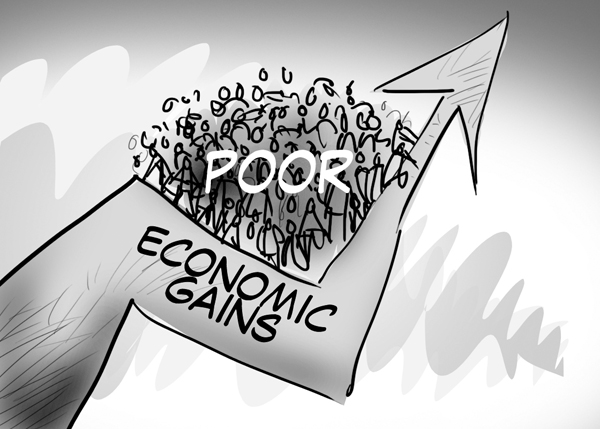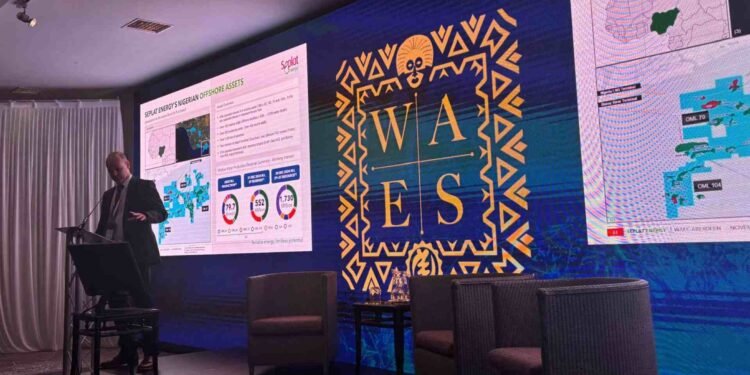The IMANI Center for Policy and Education has offered a measured critique of Ghana’s 2025 mid-year budget, acknowledging signs of economic recovery while cautioning that without deeper reforms, recent gains—including the dramatic cedi rebound—may not endure.
The policy think tank commended improvements in fiscal discipline and macroeconomic indicators but emphasized the need for structural changes to ensure the sustainability of the turnaround.
The budget review came just weeks after the IMF Executive Board met in Washington on July 7 and approved Ghana’s fourth review under the three-year Extended Credit Facility.
This endorsement unlocked a further US$367 million in funding, coinciding with the cedi’s 42 percent appreciation against the US dollar in the first half of the year. The currency’s performance—its best globally—has helped ease Ghana’s external debt burden and boosted investor sentiment.

Despite this optimistic backdrop, IMANI cautioned that momentum could stall without robust policy execution. According to the think tank, the mid-year budget’s real-sector figures show progress but also reveal significant disparities across economic segments.
“These twin developments have injected fresh optimism—but they also raise urgent questions about whether policy discipline and structural reform can sustain the turnaround. Real sector figures from the mid-year review suggest a reason for cautious celebration.
“First-quarter GDP grew by 5.3 percent year-on-year, powered equally by agriculture and services, while non-oil GDP expanded 6.8 percent. Within agriculture, yields from fisherfolk and horticultural exporters outpaced the more modest recovery in staple crops, pointing to a patchwork rebound across sub-sectors.”
IMANI Center for Policy and Education
The services sector also recorded a 5.9 percent increase, though almost half of that came from ICT alone. Meanwhile, key industries such as transport, finance, and tourism lagged.

This, IMANI argued, indicates a narrow base of growth and raises the question of whether Ghana’s economy is becoming overly reliant on a handful of tech-driven enterprises.
Accordingly, the think tank highlighted two critical concerns: that the agricultural recovery may either represent a short-lived boost driven by temporary trade incentives and favorable base effects, or signal the beginning of long-term investment in irrigation, cold-chain logistics, and agricultural financing.
It also emphasized the need for service-sector growth to diversify beyond the ICT enclave to include underperforming sub-sectors such as finance, transport, and tourism.
IMANI Flags Inflation Gaps Despite Cedi Rebound
IMANI Africa further examined Ghana’s inflation profile with cautious optimism. Headline inflation fell sharply from 23.5 percent in January to 13.7 percent by June, thanks to tighter monetary policy.
However, food inflation remains elevated—above 16 percent—and producer prices still weigh on transport and manufacturing costs.
This contrast suggests that while overall inflation is easing, many Ghanaians continue to feel the pinch at market stalls and fuel stations.
IMANI questioned whether the disinflation reflects genuine price stability or conceals entrenched cost pressures that could erode real incomes, particularly for the urban poor.

“And after producer-price inflation collapsed from over 26 percent in late 2024 to single digits, how much of those cost reductions are actually filtering through to families at the market stall, versus fattening corporate margins along the distribution chain?”
IMANI Center for Policy and Education
On the fiscal front, revenue collection showed mixed results. Mining royalties and VAT on non-oil goods exceeded expectations, supported by improved e-filing compliance and stronger exports.
But customs and import duties underperformed by GH¢1.6 billion, a shortfall blamed on smuggling and valuation disputes at the country’s ports.
IMANI asked whether the non-oil revenue uptick reflects sustainable reforms like risk-based audits and digital monitoring or merely short-term boosts from higher global prices.
Addressing the import-duty gap, they stressed, would require closing tariff loopholes and strengthening customs operations—key steps to securing budget stability even as the cedi strengthens. “Without sealing tariff loopholes and fortifying customs administration, even a buoyant cedi may not translate into budgetary stability.”
Gains Unsustainable Without Reforms
IMANI Africa credited the government for steadying the macroeconomic environment through better fiscal controls and a more disciplined budget execution.
Yet it warned that these improvements are only as durable as the institutions that uphold them. Governance reforms, especially in customs, public procurement, and state-owned enterprises, are essential to locking in progress.
The think tank also criticized recent pressure from some government ministries on retailers to lower prices.
Such public exhortations, it noted, risk ignoring the structural build-up in costs and may divert attention from necessary reforms in logistics, supply chains, and transparency in contracting.

“If policymakers bypass the hard work of supply-chain reform, logistics modernization and transparent contracting, today’s headline gains will prove short-lived. A sustained economic revival hinges on getting the governance fundamentals right.”
IMANI Center for Policy and Education
Without these foundational changes, Ghana’s current recovery may prove fleeting. IMANI emphasized that durable growth depends on addressing inefficiencies, modernizing infrastructure, and embracing clear, rules-based economic management.
In its policy recommendations, IMANI called for stronger coordination between fiscal and monetary institutions.
It urged the government to adopt a transparent macroeconomic framework that avoids politically motivated subsidies and unbudgeted spending.
Priority should instead be placed on infrastructure that boosts productivity and social interventions that protect vulnerable groups.
At the same time, “the Bank of Ghana should maintain transparent interest rate guidance and sterilize excess liquidity from deficit financing” while also managing liquidity injections stemming from fiscal deficits.
Only by aligning fiscal prudence with long-term investment and institutional reform, IMANI concluded, can Ghana convert its temporary recovery—symbolized by the cedi’s rally—into lasting economic progress.
READ ALSO: Ghana’s Economic Growth Set to Accelerate to 6.2% in 2025 – Standard Bank Forecasts























